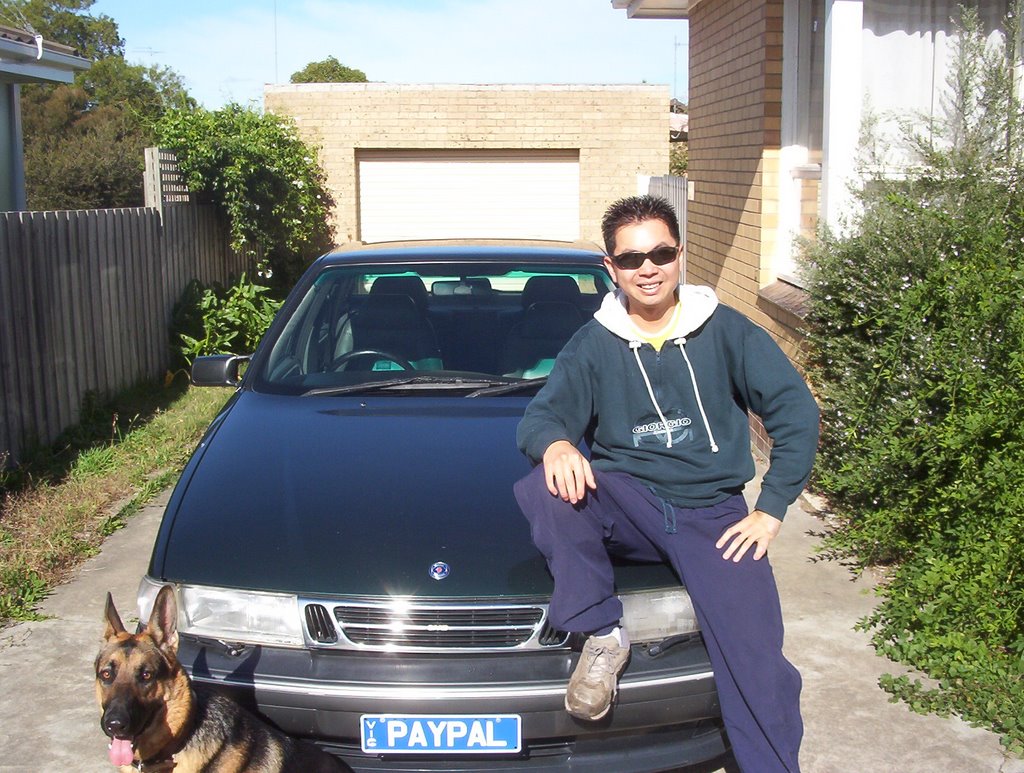Of journos, blogs and beer
I can give a deep link to the article in question, entitled ZDNet gets a Reality Check, but it won't work unless you have a username and password, and those are only given out by Phil to Australian IT journos and marketing people. The salient section of the piece is thus (I can't get hold of Phil at the moment, but I'm sure he wouldn't mind me reprinting it):
“The way I've been negotiating it with [ZDNet News Editor] Iain Ferguson and [ZDNet Editorial Director] Brian Haverty is to have it as more of an education for IT managers. A lot of what I've been doing on my personal blog is 'diarising' things that have happened,” said Montgomery.
“This new blog is a bit more like an old style column. I'm hoping over time to convince Iain and Brian to let me blog more than 'columnise'.”
“For a mainstream media organisation it's a problem that most journos think in the old mindset. There's an education that many journalists need, because blogs are different to columns.”
Montgomery is under no illusions about the difficulties he could face in adapting to the ZDNet style.
“Most bloggers expect not to be edited at all. I'm certainly not going to refuse editing, but blogs are different beasts to columns and editors need to see their value.
“[The difference] is mostly in the implementation. With blogs you have complete control of format, time and editing, whereas with this [ZDNet] blog I have to email off my contributions. My first entry took about two weeks to get a version that both sides were happy with. I hope they're not all like that!”
“You get more honest product with a blog, whether that means it's a better quality product is in the eye of the beholder.”
I have been informed that these quotes, which I do not deny saying to Daniel over the phone nor claim to have been misquoted (wouldn't want to get Daniel in trouble too!), have been construed as implying that I was unhappy with ZDNet about censorship of my blog. If that is the conclusion that anyone has drawn, I apologise. It was not my intention to slight ZDNet or anyone at ZDNet for anything. During the interview, Daniel and I were talking about the difference between blogs and column pieces and he remarked after I said what is contained in those first two paragraphs that in interviews with other bloggers he had not heard any of them find any differences between the two, to which I replied in a general sense to produce the above quotes. I was not thinking of ZDNet in particular at all when I spoke, although in retrospect I should have realised that it could be seen that way. I am sorry for not being conscientious enough to figure that out.
As to whether I think ZDNet is censoring me: no, I don't think so. I said in my last post here, as noted by Phil, that there are some subjects that it would be hard to cover there compared to here, and I stand by that statement, but I don't see that as a slight. ZDNet has a long-standing tradition of quality journalism which their editors have every right to uphold by editing content which appears on their network. They would be justified in spiking a blog post that does not meet their editorial standards. In fact, I was sticking up for ZDNet in attacking Gillmor, since I don't think his writings are up to the standard to which the ZDNet Australia editors hold local content. I started my career at the company which now operates under the CNET banner, and it is because of my experience of their strong editorial focus that I approached Brian to blog for them.
It is ironic being on the other end of this, seeing as I have written so many feature stories containing quotes from hastily-transcribed interviews in my journalism career which caused the quoted users and vendors (and my editors!) no end of trepidation and/or irritation. Be they MSM or blogs, those media with a large or important enough audience can affect reputations with the press of a key. I guess karma caught up with me. I hope to settle all of this over a beer the next time I'm in Sydney, the way journos normally deal with this sort of thing.


